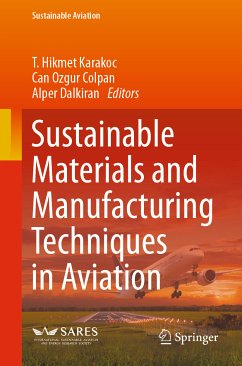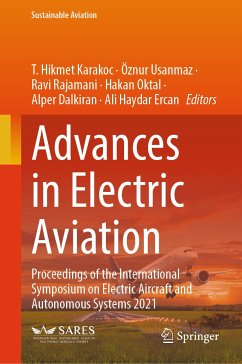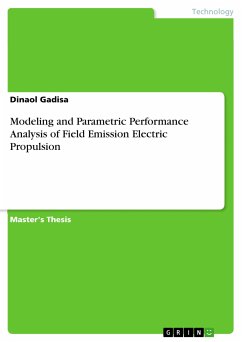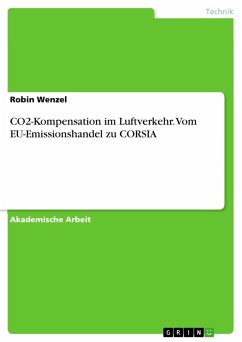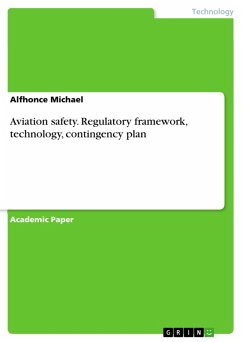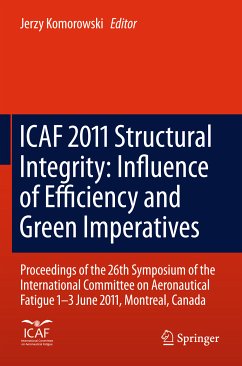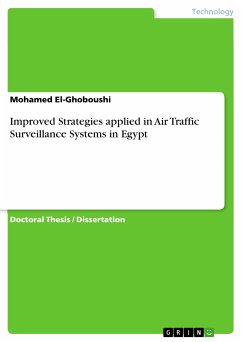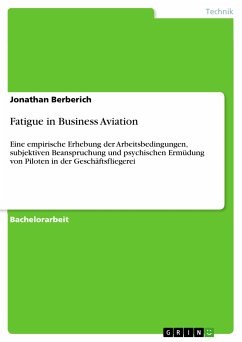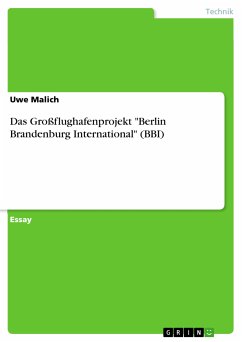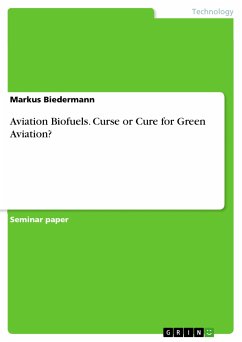
Aviation Biofuels. Curse or Cure for Green Aviation? (eBook, PDF)
Sofort per Download lieferbar
Statt: 17,95 €**
15,99 €
inkl. MwSt. und vom Verlag festgesetzt.
**Preis der gedruckten Ausgabe (Broschiertes Buch)
Alle Infos zum eBook verschenkenWeitere Ausgaben:

PAYBACK Punkte
0 °P sammeln!
Seminar paper from the year 2015 in the subject Engineering - Aerospace Technology, grade: 1,0, University of Applied Sciences Frankfurt am Main, language: English, abstract: The purpose of this paper is to evaluate the challenges and chances of biofuels in an aviation context. It begins by providing a brief history on biofuels in general and in aviation specifically. It is followed by an overview of the main driving forces for the aviation industry to invest in biofuels and their development. After that, different available biofuels and their segmentation in first, second, and third generatio...
Seminar paper from the year 2015 in the subject Engineering - Aerospace Technology, grade: 1,0, University of Applied Sciences Frankfurt am Main, language: English, abstract: The purpose of this paper is to evaluate the challenges and chances of biofuels in an aviation context. It begins by providing a brief history on biofuels in general and in aviation specifically. It is followed by an overview of the main driving forces for the aviation industry to invest in biofuels and their development. After that, different available biofuels and their segmentation in first, second, and third generations is shown in more detail along with a basic overview on the production processes that exist on the market. Based on the given information, first the challenges and after that, the chances, for the aviation industry on investing in aviation biofuels is shown into detail. The paper claims that the biofuels still have major issues as there is no real alternative on the market or in development that can substitute crude oil-based jet fuel up to 100%. Current biofuels can only be used as mixtures with conventional jet fuel. However, the biggest issue, namely that biofuels cannot be certified in aviation because of their specifications, is solved with second-generation biofuels. The main challenges are still to find a sustainable biofuel that can be used without changes to existing aircraft propulsion technology and nothing ensures that this will be possible in the necessary timeframe until the crude oil finally starts to become less available. That point in time is constantly updated, but only based on statistical data. It is not known at what point in time this will be exactly. However, there are a number of opportunities. They range from having an alternative to substitute conventional jet fuel for emission reduction reasons to the investment of an aircraft operator to the production of biofuel itself. This could be for the sake of entering new markets or just to integrate the fuel supply into the company-owned supply chain. The paper concludes that a lot of development still seems to need to be required before a real alternative to conventional jet fuel is available on a large scale. The most promising approach today is the algae-based fuel.
Dieser Download kann aus rechtlichen Gründen nur mit Rechnungsadresse in A, B, BG, CY, CZ, D, DK, EW, E, FIN, F, GR, HR, H, IRL, I, LT, L, LR, M, NL, PL, P, R, S, SLO, SK ausgeliefert werden.





